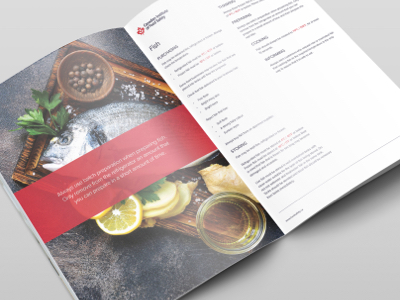TORONTO, ONTARIO
As of July 1st, 2018, Ontario's Ministry of Health and Long-Term Care has new food safety training requirements for food businesses located in Ontario.
In most cases, the new changes are incorporating items that were previously covered by municipality by-laws into the provincial laws.
The Food Handler Certification Course provided by the Canadian Institute of Food Safety has been approved by the Ministry of Health and Long-Term Care in Ontario. Food Handlers, business owners and operators who complete the CIFS Food Handler Certification course comply with all new legislation, avoiding fines and the possible closure of their business.
The following highlights the new laws under the Ontario Food Premises Regulation 493/17 (formerly Reg. 562/90) coming into effect July 1st, 2018:
Inspection reports (section 6)
All food premises must now display the results of food safety inspections according to any instructions provided by health inspectors.
Pest control (section 13)
All food premises need to take measures to ensure that they are protected against pest entry, pest harbouring and pest breeding. They also need to maintain records of pest control measures for at least a year.
Food protection (section 26)
Key points to be aware of in Section 26:
- All food must be protected from contamination and adulteration.
- All food must be processed in a manner that makes it safe to eat.
- Food businesses must not re-serve food that’s previously been served to customers – unless it was served in packaging or a container that hasn’t been compromised.
Temperature control (section 27)
Potentially hazardous foods must be kept out of the Temperature Danger Zone of 4°C to 60°C / 40℉ to 140℉.
This means that potentially hazardous foods must not be distributed, maintained, stored, transported, displayed, sold or offered for sale where the internal temperature is within the Temperature Danger Zone.
However the above does not apply if:
- The food is being prepared, processed or manufactured within the Temperature Danger Zone, but has been in the zone for less than two hours.
- The food has been hermetically sealed and subjected to a process that prevents the production of bacterial toxins or the survival of spore-forming pathogenic bacteria.
Food Handler training (section 32)
There must be at least one person on the premises that has completed approved Food Handler Certification training at all times that the food business is operating.
This is a significant change as previously only certain municipalities in Ontario had requirements related to Food Handler training.
Personal hygiene (section 33)
Additional requirements for Food Handlers have been introduced, Food Handlers must:
- take care not to contaminate food with their hair
- wash their hands as frequently as required to ensure food doesn’t get contaminated
- refrain from any conduct that could lead to food or food service contamination
To review all amendments visit Ontario Regulation 493/12 made under the Health Protection & Promotion Act.




